1. Macaques: Mischievous and Misunderstood
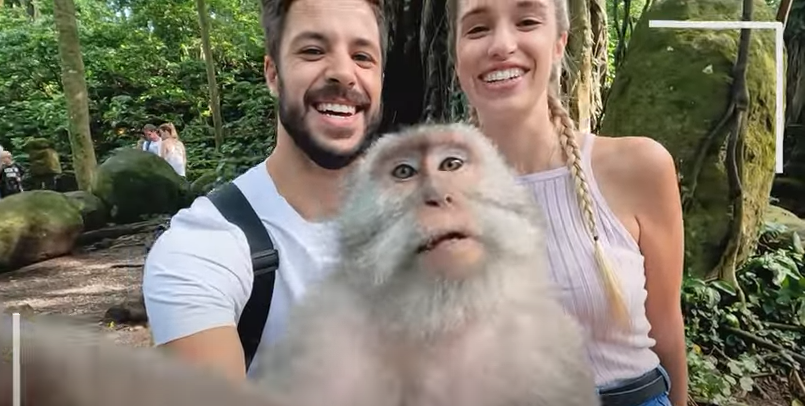
YouTube/The Buddymoon
Macaques are highly intelligent and curious creatures, making them a popular choice for selfies. However, the reality behind these photos is often grim. Many macaques are captured illegally, removed from their families, and sold into the pet trade or tourist attractions. Once in captivity, they are subjected to harsh conditions, including inadequate diets and limited social interaction. Their natural behaviors are suppressed, and they may be chained or forced into unnatural positions for photos. These practices not only harm individual macaques but also contribute to the decline of wild populations. That cheeky selfie might seem harmless, but it’s a snapshot of a much larger problem.
2. The Sloth in the Spotlight: A Sad Reality
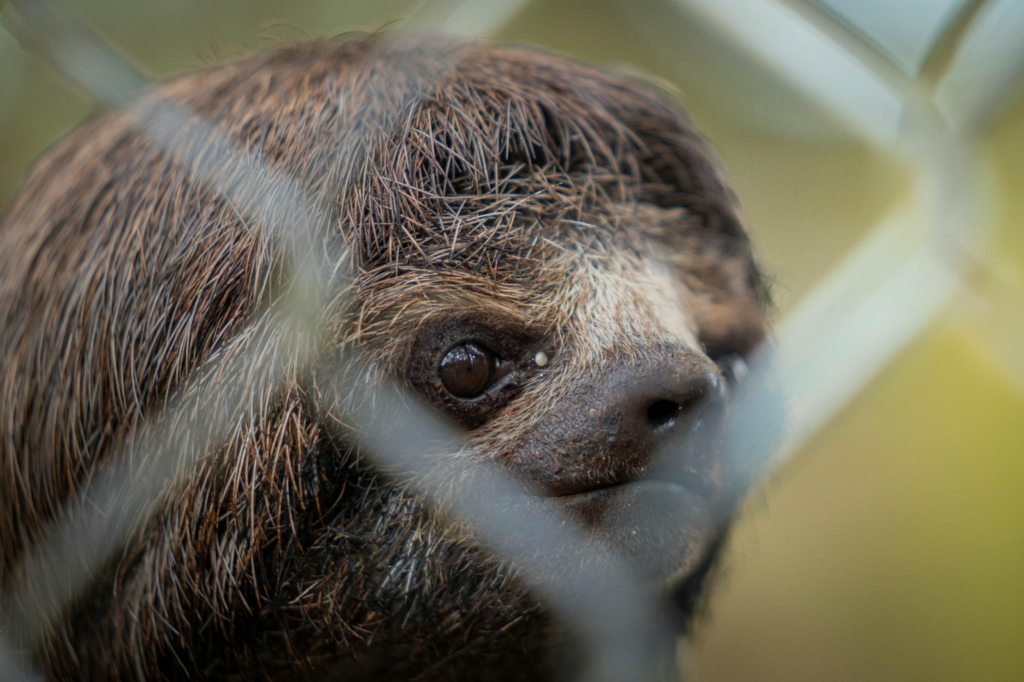
Pexels
Sloths are often portrayed as cute, cuddly, and perfect for selfies, but their reality is far from glamorous. These slow-moving creatures are incredibly sensitive to stress, and being handled by humans can lead to severe health issues. In many tourist hotspots, sloths are taken from their natural habitats and passed around for photos. Behind every smiling selfie, there is often a terrified animal enduring constant manhandling. Sloths require specific environments to thrive, and removing them for entertainment disrupts their delicate ecosystems. That “adorable” moment can shorten their lifespan significantly. It’s heartbreaking to think that a photo opportunity could lead to an animal’s suffering, but that’s the dark truth behind many sloth selfies.
3. Dolphins: Distress Behind the Smile
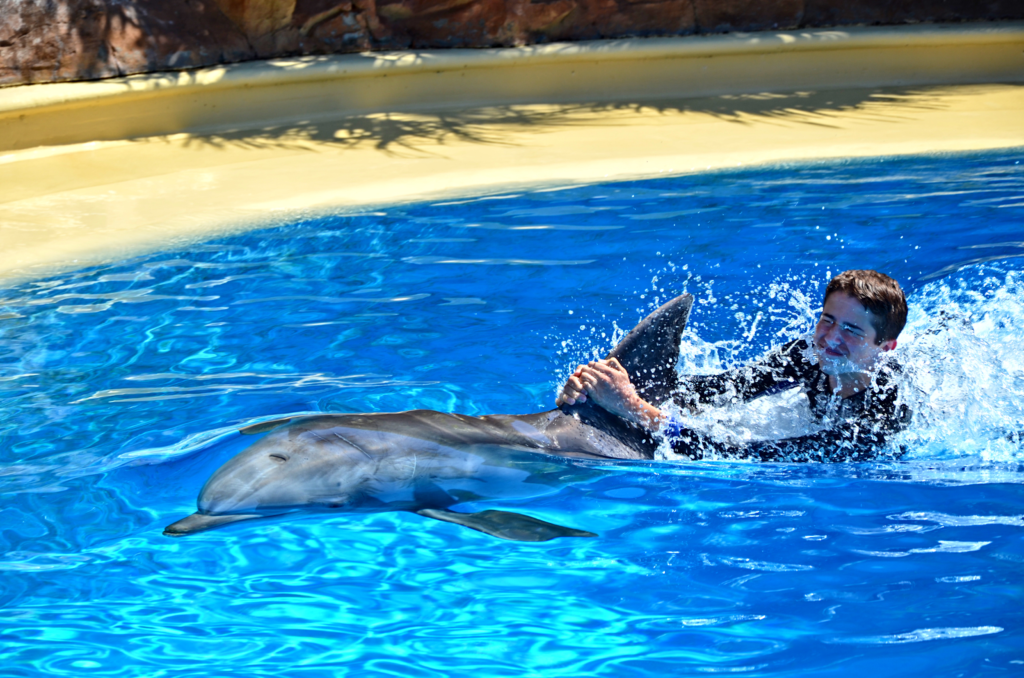
Wikimedia Commons
Dolphins may look like they’re smiling, but that upturned mouth is no indication of happiness. Capturing a selfie with a dolphin often involves these intelligent animals being corralled into shallow waters, where they are overhandled and stressed. In some cases, dolphins are kept in captivity for tourist photo ops, where they endure poor living conditions. This stress can weaken their immune systems and lead to premature death. Additionally, wild dolphins rely on complex social structures that are disrupted when humans intervene. The next time you see a picture of someone posing with a dolphin, consider the immense toll it takes on these highly intelligent and social creatures.
4. Tigers: Majestic, Not Props
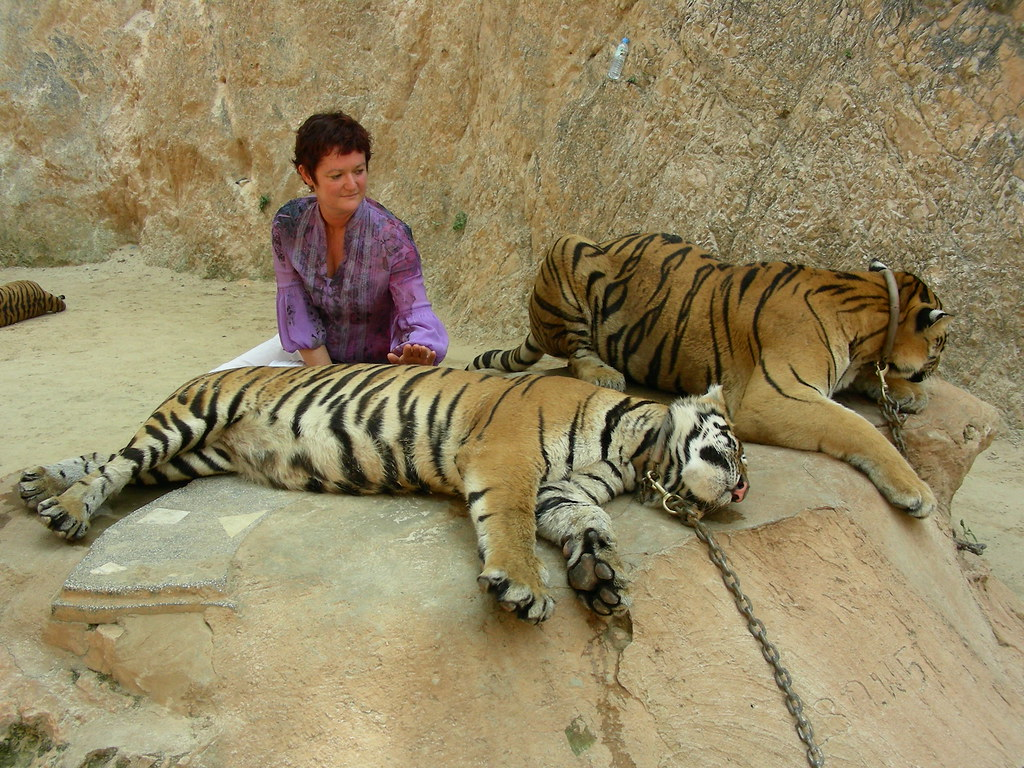
Flickr
Tigers are a favorite for thrill-seeking tourists looking to snap a “brave” selfie. Unfortunately, most of these big cats are drugged or chained to make them docile enough for photos. In facilities that offer tiger selfies, these majestic predators are often subjected to cruel training practices and live in cramped, unnatural conditions. Many cubs are taken from their mothers at an early age to become props for tourists. This separation is emotionally devastating for both the cub and the mother. Tigers belong in the wild, stalking prey and roaming vast territories, not posing for photos in confined spaces. When you see a tiger selfie, remember the suffering that went into creating that moment.
5. Sea Turtles: Beauty Disrupted
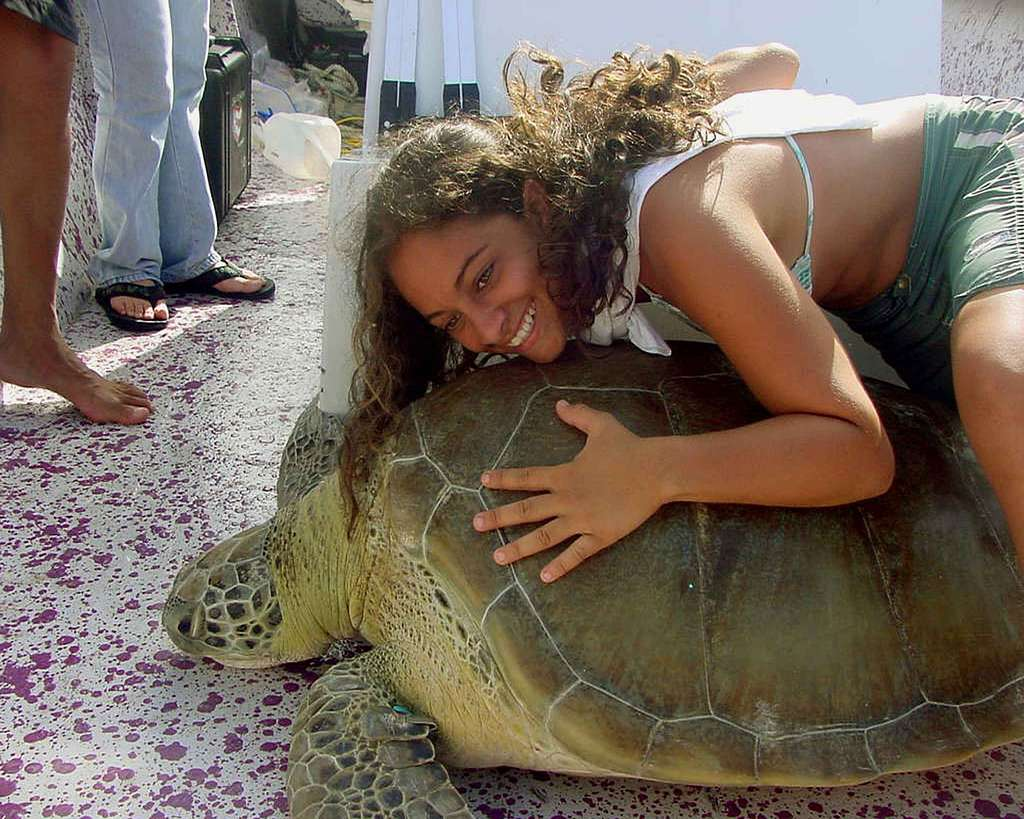
Picryl
Sea turtles are stunning creatures that deserve our respect and protection. Unfortunately, in many coastal tourist destinations, they are removed from the water and passed around for photos. This kind of interaction is incredibly stressful for the turtles, as they are out of their natural environment and unable to breathe comfortably. Handling them can also damage their sensitive shells and skin, leading to long-term health issues. Sea turtles play a vital role in maintaining healthy marine ecosystems, and disrupting their lives for a few likes on social media is not only harmful but also irresponsible. Think twice before lifting one out of the water for a picture.
6. Elephants: The Burden of Tourism
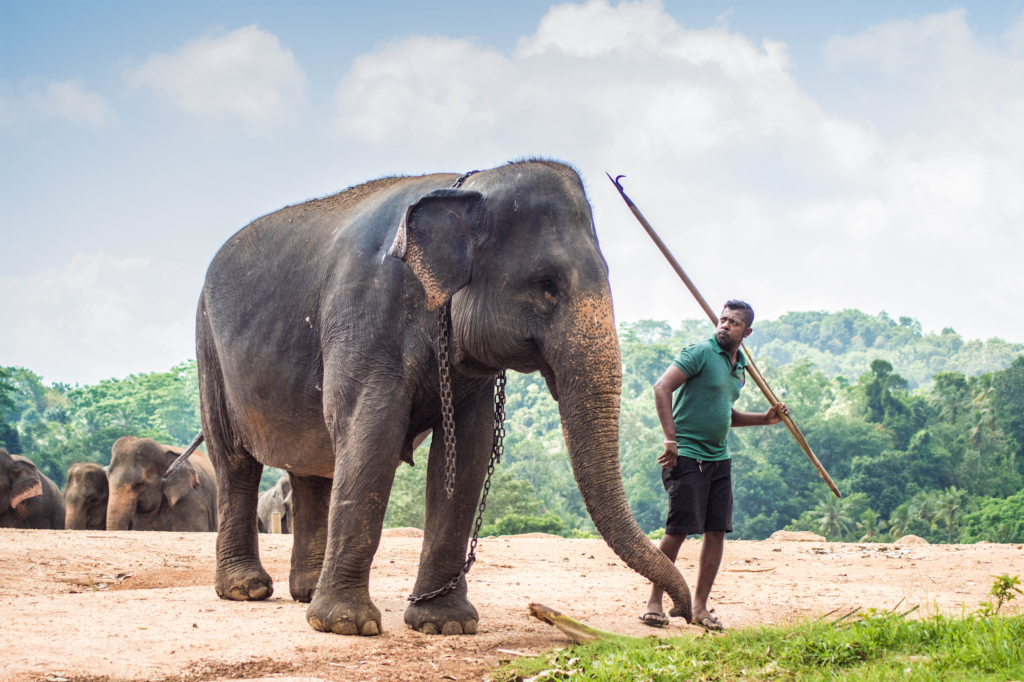
Wikimedia Commons
Elephants are often seen as gentle giants, and many tourists dream of taking a selfie while riding one or standing beside one. However, these interactions usually involve elephants that have been subjected to abusive training methods to make them “safe” for human interaction. In captivity, elephants are often deprived of the social bonds and vast territories they need to thrive. They may endure harsh conditions and even physical abuse to meet the demands of the tourism industry. When you pose for a selfie with an elephant, you may be unknowingly supporting practices that cause these magnificent animals a lifetime of suffering.
7. Koalas: Cuddly, Not Captive
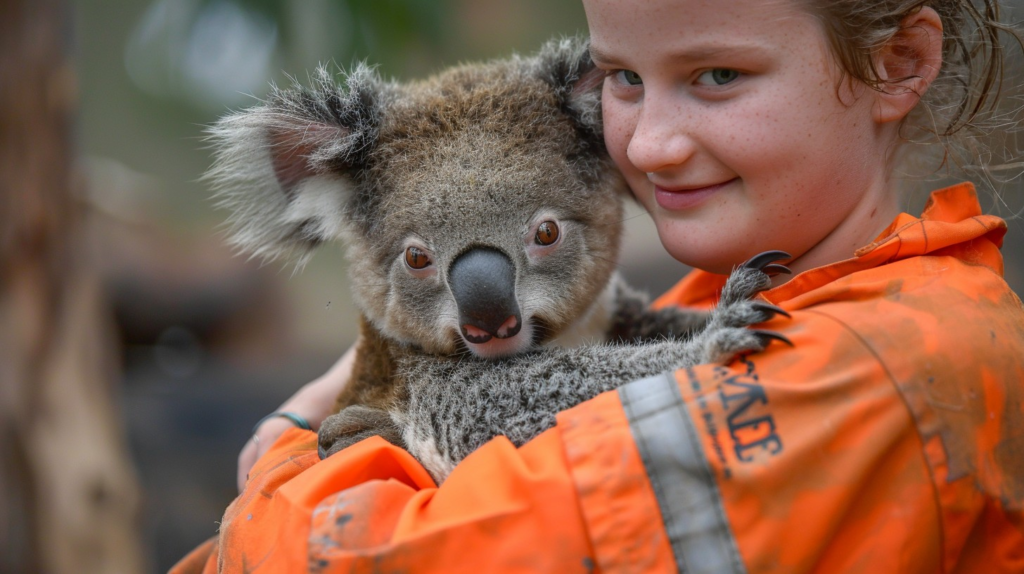
StockCake
Koalas are often seen as the ultimate cuddle buddy, making them a popular choice for selfies in Australia. But while they may look relaxed, being held by humans can be incredibly stressful for these marsupials. Koalas have very specific dietary and environmental needs, and handling by tourists can disrupt their eating and sleeping habits. In some cases, they are passed around all day, with little to no time to rest. This stress can weaken their immune systems, making them more susceptible to diseases. Koalas belong in the wild, munching on eucalyptus leaves, not posing for endless photos.
8. Exotic Birds: Beauty in Chains
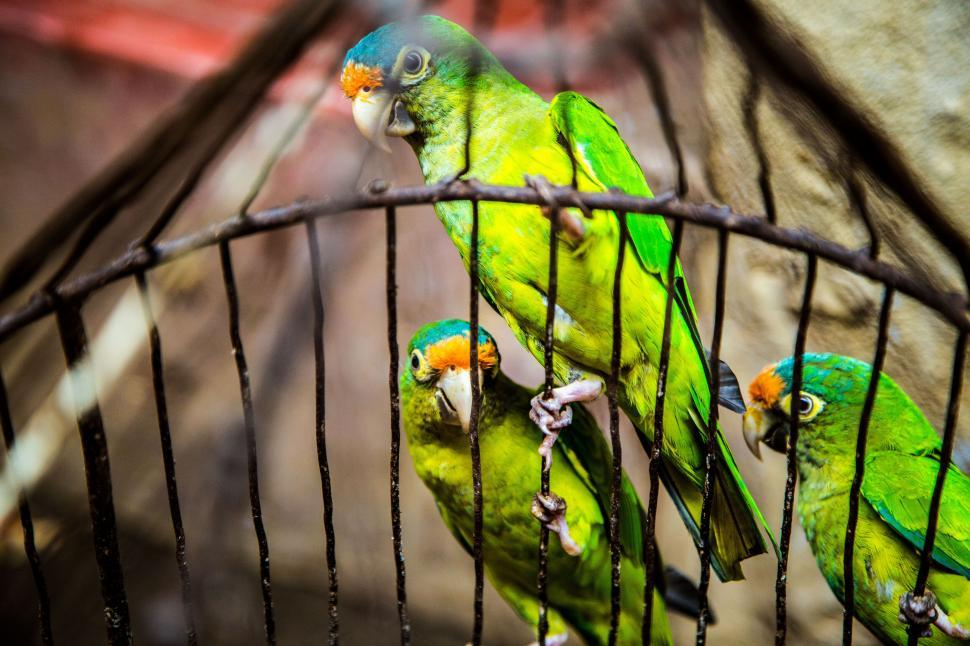
Freerange Stock
Brightly colored parrots and other exotic birds are often used as selfie props in tropical destinations. What many don’t realize is that these birds are often captured illegally and kept in small, inadequate cages when they’re not “on duty.” Their wings may be clipped to prevent them from flying away, and they endure hours of being handled by strangers. These interactions can cause significant stress and even physical harm to the birds. Additionally, the illegal bird trade is a major threat to wild populations, driving some species to the brink of extinction. Before you pose with a parrot on your shoulder, consider the dark reality behind the scene.
9. Snakes: Exploited and Endangered
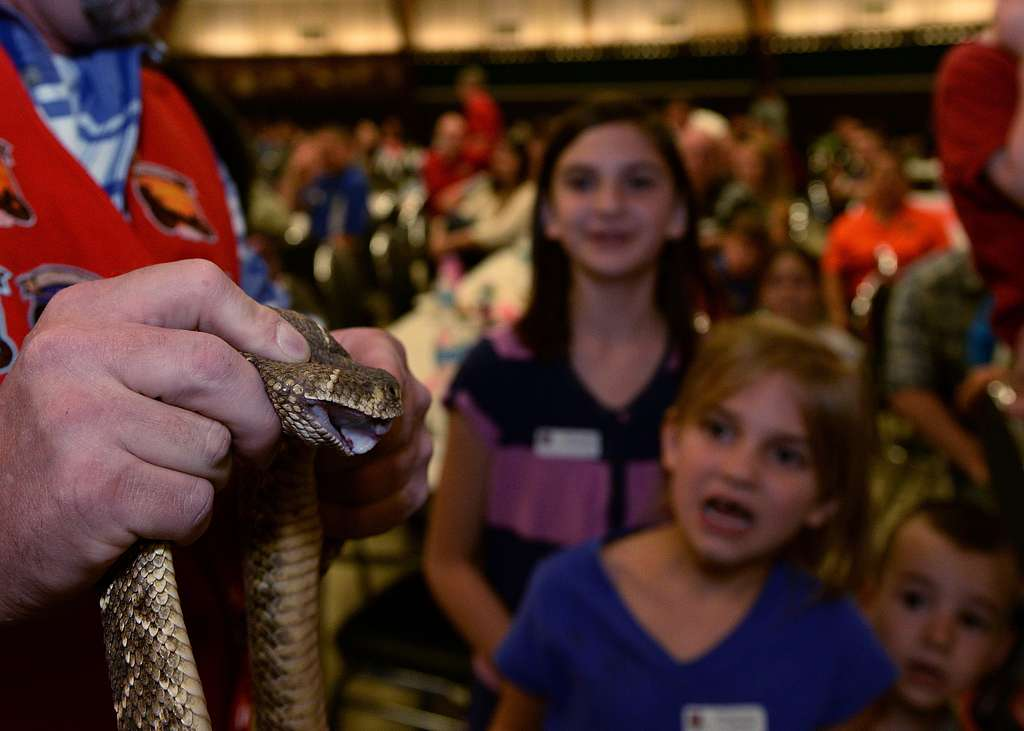
GetArchive
Snakes are a common feature in tourist photo ops, especially in markets and festivals. Many of these snakes are captured from the wild and kept in poor conditions, with limited access to food and water. They are often overhandled, which can lead to dehydration and stress. In some cases, their fangs are removed, a practice that is both cruel and dangerous for the snake’s health. These animals play a crucial role in their ecosystems as pest controllers, and removing them from the wild disrupts ecological balance. A snake selfie might seem adventurous, but it often comes at the expense of the animal’s well-being.
10. Bears: From Wild to Whipped
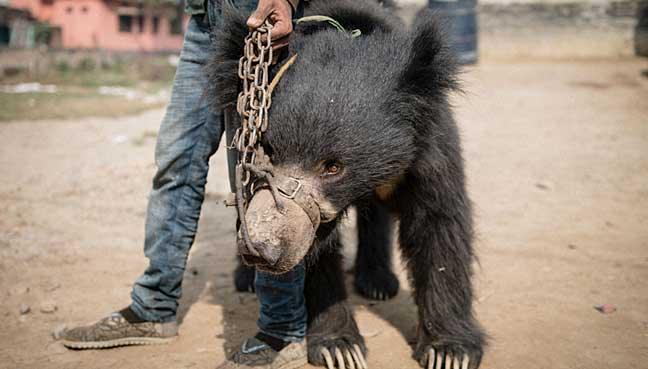
FMT
Bears are sometimes used as photo props, particularly in circuses or roadside attractions. These powerful animals are often subjected to inhumane training methods, including physical punishment, to make them compliant. They may be muzzled, chained, or kept in tiny cages when not performing. Such conditions are far removed from their natural habitats, where they roam large territories and exhibit complex behaviors. Using bears for selfies reduces them to mere props and ignores their intelligence and emotional capacity. If you see a bear being used for photos, remember that this moment of entertainment comes at a significant cost to the animal.
11. Penguins: Fragile in the Face of Fame
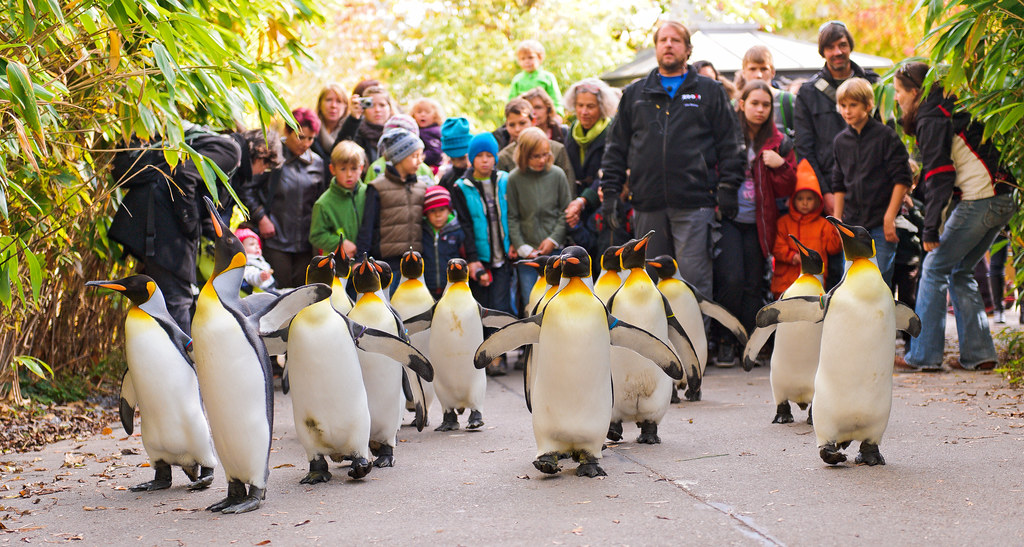
Flickr
Penguins are undeniably adorable, which makes them a popular choice for selfies in their natural habitats. However, these encounters often disrupt their daily lives and breeding behaviors. Tourists eager for a close-up may invade nesting areas, causing stress and even abandonment of eggs or chicks. Penguins are also highly sensitive to human presence, and repeated disturbances can have long-term impacts on their populations. Instead of getting up close for a selfie, consider observing these charming creatures from a respectful distance. Supporting responsible eco-tourism ensures that penguins can continue to thrive in their natural environments.
12. Hedgehogs: Cute but Compromised
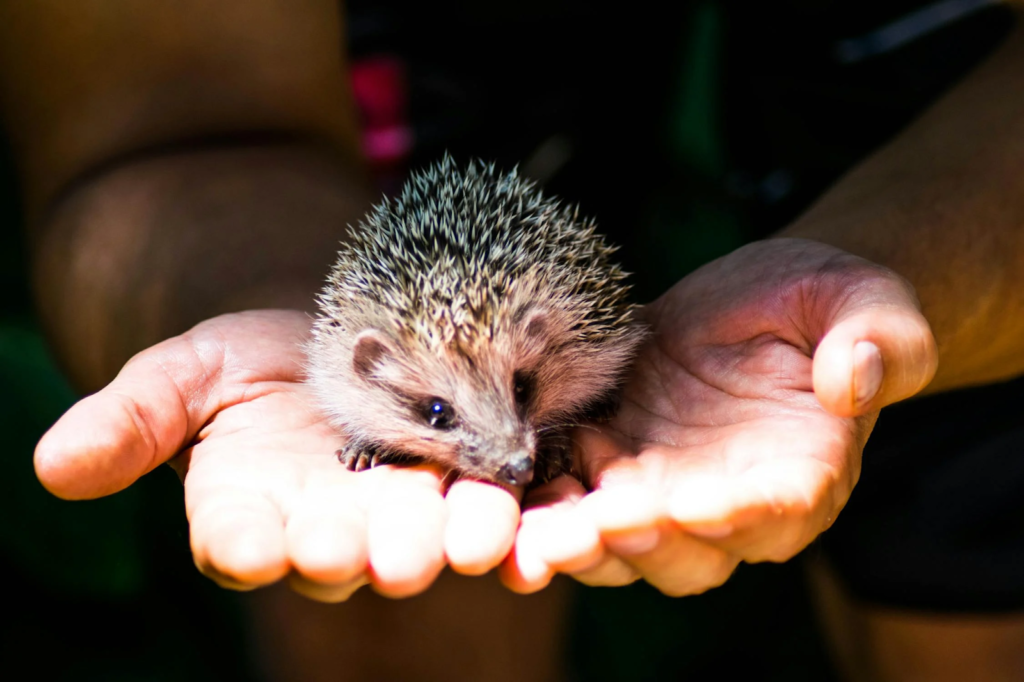
Pexels
Hedgehogs have become a trendy choice for selfies due to their undeniably adorable appearance. However, these nocturnal creatures are often mishandled in the pursuit of the perfect photo. Being exposed to bright lights, loud noises, and constant handling during daylight hours can cause extreme stress for hedgehogs. This can disrupt their natural behaviors, weaken their immune systems, and even shorten their lifespan. Many hedgehogs used for photo ops are bred in captivity under poor conditions, contributing to the growing issue of unethical pet trade. If you love hedgehogs, appreciate them from afar or support sanctuaries that prioritize their well-being over social media trends.


